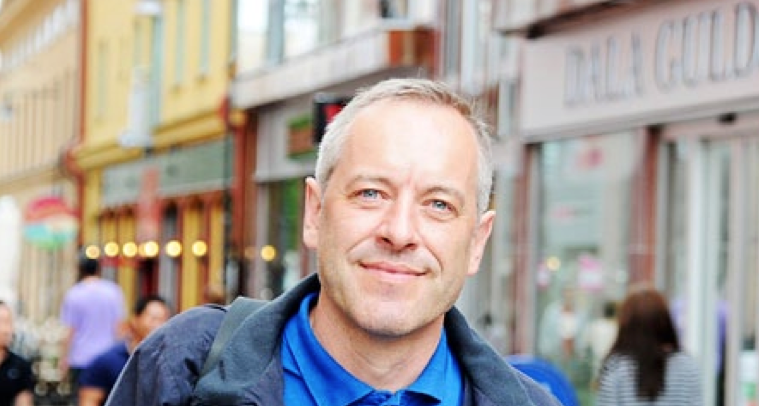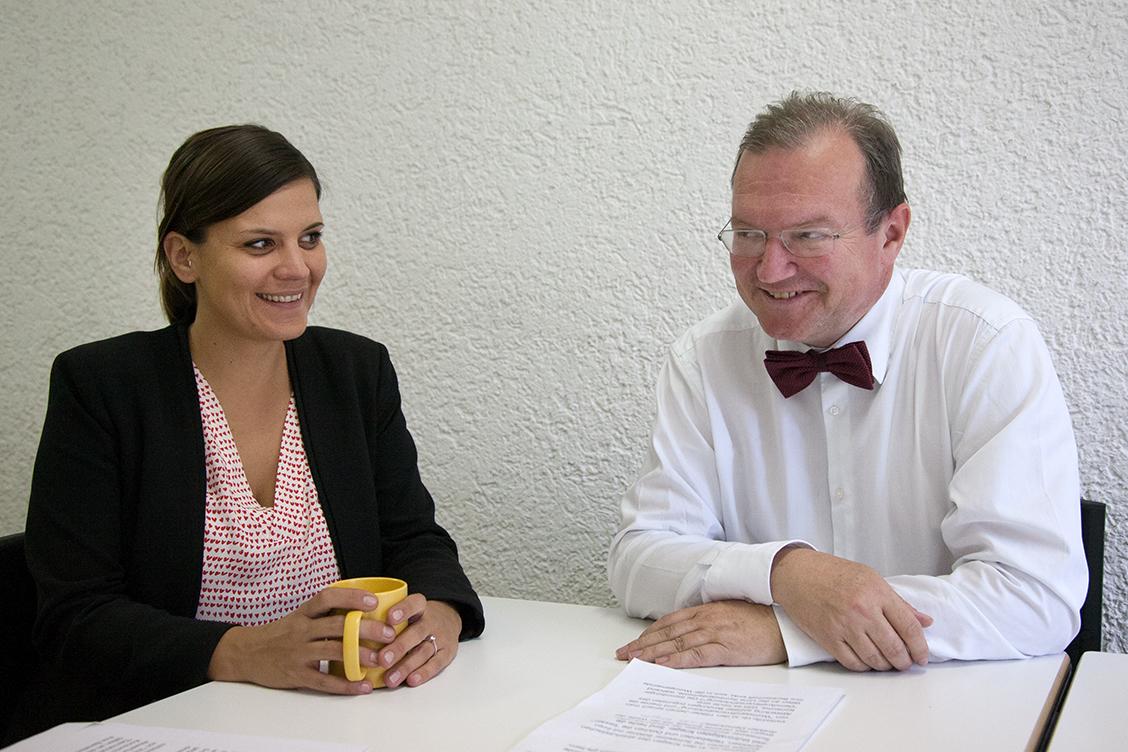Matching Minds, Global Opportunities
The Arab world’s first democracy has made a historic step forward, after the Tunis Global Forum on Modern Direct Democracy, writes Bruno Kaufmann, editor-in-chief at people2power.info.
Biased! Partisan! Unacceptable! Many clear and unforgiving words were written and communicated to the international facilitators ahead of the 2015 Global Forum on Modern Direct DemocracyExternal link, the world’s biggest gathering on active citizenship and participatory democracy, which took place in Tunis in mid-May.
Every time a somewhat controversial name for a keynote or workshop were presented by one camp, the other one mobilised with a battery of other names. So, by the time of the start of this 5th World Democracy Forum since 2008 (earlier ones took place in Aarau/Switzerland, Seoul/Korea, San Francisco/USA and Montevideo/Uruguay), the agenda was more than filled up with personalities from all kind of parties, organizations, adminstrations, civil society groups and the media. Many of them had never met before, and some were obviously surprised to sit suddenly on the same panel beside someone they had previously considered to be the “devil”.

Respected bridge-builders
That created truly surprising encounters, for example, the first visit of the leader of the Tunisian moderate Islamist movement Ennahda, Rachid al-Ghannouchi, to the public university, the Agronomic Institute of the University of Carthage, where the Global Forum took place. With this the politician – protected by bodyguards – reconnected with his own past as an agronomy student in Cairo and his idea of a democracy that can co-exist with Islam.
Al-Ghannouchi’s performance underlined what makes Tunisia the clear front runner when it comes to developing a modern, democratic society: the willingness to talk to each another when it’s important. So, most interestingly, after a long initial speech, which reminded me of the sermons given by Catholic priests back home, Al-Ghannouchi did not depart as announced but stayed for several hours to follow the statements and the allegations by the equally strong group of deliberately non-religious speakers, including the philosopher and anthropologist Youssef Sedik. While having rather opposing political views when it comes to the role of religion in politics, both men congratulated each another for being bridge-builders in society.
By the end of the four-day Forum, the more than 450 registered participants agreed on a common declaration that opens a critical window of opportunities to the Arab world:
”There are people who have said that democracy is impossible in the Arab World. But here we are in Tunisia, the Arab World’s first democracy. There are people who say democracy and Islam are not compatible. But here, again, we are in Tunisia. And we have heard here that Islamic principles do not need to be in contradiction with democracy, and vice versa.”
We need all to become democracy facilitators!
The Forum in the Tunisian capital offered more proof that seemingly opposing minds can get together on the issue of modern direct democracy. “Tunis” included encouraging conversations between state administrators (inherited from the dictatorship) and young and dynamic local leaders born out of the 2011 revolution. They agreed on the necessity of decentralising the state by involving citizens in the process from the very beginning. Another such meeting of the minds was seen in a workshop on citizen-led media, where it became clear that journalists need to become more like citizens while citizens need to embrace journalism more actively – to overcome mistrust and allow for more community-oriented channels of information and communication.
What can we learn from the Global Forum in Tunisia? More of the same, all over the place! It has become clear that a democracy that goes beyond simple representation to comprehensive participation offers global opportunities like no other political system. Such participatory democracy reconciles ancient concepts of the agora (meeting and market places), religious consultations like the shura (an Islamic concept), medieval assemblies with individual human approaches, IT-solutions and transnational dynamics.
The world democracy summit in Tunis is clear that we, the individual citizens as participants, need not just to talk but also we need to become democracy facilitators as well – in our different roles in everyday lives, at home, with friends and at fascinating meeting places like the 2015 Global Forum on Modern Direct Democracy in Tunis.
The views expressed in this article are solely those of the author, and do not necessarily reflect the views of swissinfo.ch.
Opinion series
swissinfo.ch publishes op-ed articles by contributors writing on a wide range of topics – Swiss issues or those that impact Switzerland. The selection of articles presents a diversity of opinions designed to enrich the debate on the issues discussed.

In compliance with the JTI standards
More: SWI swissinfo.ch certified by the Journalism Trust Initiative












You can find an overview of ongoing debates with our journalists here . Please join us!
If you want to start a conversation about a topic raised in this article or want to report factual errors, email us at english@swissinfo.ch.